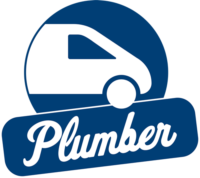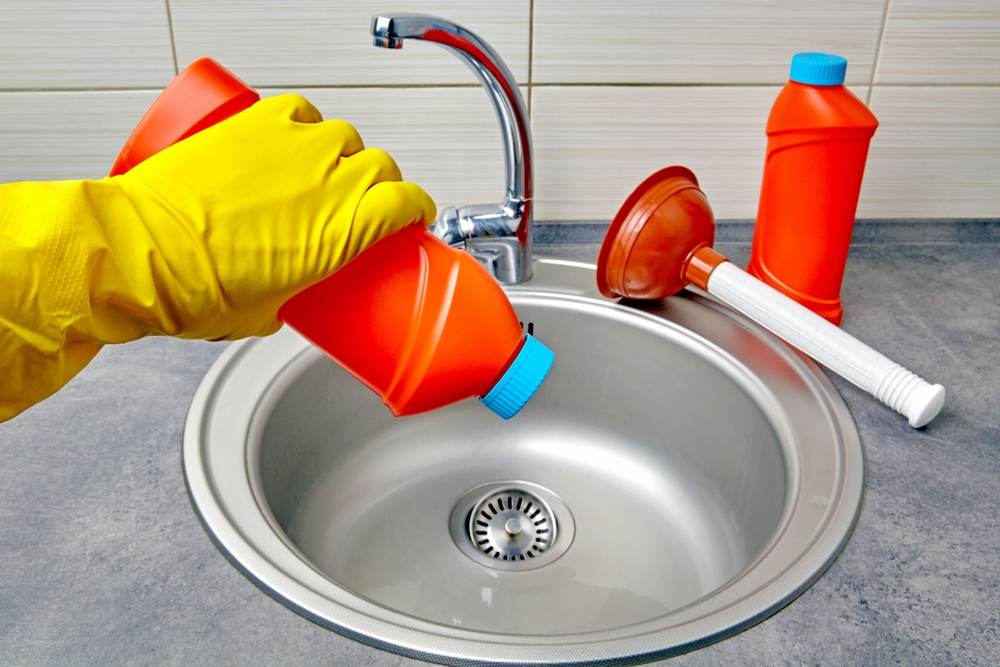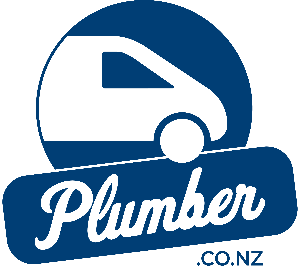Pipes are hidden away, out of sight and out of mind. If you’re not in the plumbing industry, you probably don’t spend much time thinking about them—and we don’t blame you; that’s our job. However, this lack of visibility makes it easy for misconceptions to take root and spread. Maybe you’ve heard that a slow-draining sink just needs a bit of drain cleaner or that flushable wipes are safe for your plumbing. These myths aren’t just untrue; they can lead to costly mistakes and unnecessary stress. We at Plumber.co.nz are sick of all the misconceptions out there which is why we’re setting the record straight by debunking some of the most common plumbing myths.
Myth 1: “A Slow-Draining Sink Just Needs a Bit of Drain Cleaner…”
We’ve all encountered a sink that seems to be in no hurry to drain, and there’s always that one family member or flatmate who insists a bit of drain cleaner will do the trick. But before you reach for that bottle, consider this: while it might seem like a quick fix, chemical drain cleaners can cause more harm than good.
We’re not going to lie and say drain cleaner is completely ineffective. The myth wouldn’t exist if there wasn’t a grain of truth to it. The acidity in drain cleaners can dissolve hair, grease, food, and other blockages, giving the illusion of a fixed sink. However, this same acidity can start corroding your pipes over time, leading to leaks and even bigger plumbing issues down the road. Plus, the root of the issue is never really solved with drain cleaner, and you’ll likely find the problem returning within a few days.
For a better temporary fix, try using a plunger, which can effectively clear blockages without damaging your pipes. And if that doesn’t work, it’s time to call in the professionals at Plumber.co.nz.
Myth 2: “Flushable Wipes Are Safe For Your Plumbing.”
This myth is particularly frustrating because it’s right there on the packet—flushable wipes should be safe to flush, but they’re not. They’re marketed as such to boost sales, but while they might be convenient, they definitely aren’t plumbing-friendly.
These so-called flushable wipes don’t break down like toilet paper. Instead, they can clump together and create massive blockages in your pipes. Over time, these blockages can lead to costly repairs and even environmental damage as they make their way into our waterways.
Fortunately, the solution is simple. Stick to good old-fashioned toilet paper. It’s designed to dissolve quickly and won’t wreak havoc on your plumbing system. Bidets are also a fantastic alternative that helps prevent blockages. And if you really can’t part with your wipes, feel free to keep using them—just be sure to toss them in the trash rather than flushing them down the toilet.
Myth 3: “Plumbing Fixtures Require Little to No Maintenance”
Just because you don’t maintain your plumbing fixtures, doesn’t mean they don’t require any. Unfortunately, most aren’t ‘set-it-and-forget-it’ items, meaning they’ll need regular maintenance to avoid major problems down the road.
Taps, toilets, and water heaters all need routine checks to ensure they’re functioning properly. Without regular maintenance, taps and toilets can develop leaks, leading to expensive repairs. Water heaters, if not properly maintained, become less efficient over time, resulting in higher energy costs and an increased risk of unexpected breakdowns. Additionally, other fixtures like showerheads and garbage disposals benefit from routine checks to prevent build-ups and clogs.
Myth 4: “Leaky Taps Are Not a Big Deal.”
Yes, they are. Or maybe they aren’t a big deal if you don’t mind wasting an extra 5,500 litres of water a year. This waste not only impacts your wallet but also has broader environmental consequences, meaning there’s never a good excuse to ignore a leak.
In New Zealand specifically, household leaks account for a significant proportion of water loss within property boundaries, adding unnecessary costs to your water bill and contributing to water scarcity. The mass effect of everyone believing the myth that leaky taps are not a big deal creates a compound problem. This widespread belief exacerbates water wastage on a larger scale, intensifying the impact on our water resources.
Moreover, a constant drip can cause wear and tear on plumbing fixtures, leading to more extensive and expensive repairs over time. Addressing a small leak now can save you from the hassle and cost of more significant damage later.
Myth 5: “All Plumbers Are the Same; It’s Fine to Hire the Cheapest”
We know it’s tempting to go cheap and save a few extra dollars. However, the truth is – not all plumbers are good at what they do.
Opting for the lowest bid might seem like a good idea at first, but you could be inviting a host of issues into your home. Inexperienced or underqualified plumbers can cause more harm than good, leading to poor workmanship, future repairs, and even potential damage to your property. While it’s true that some cheaper plumbers might do good work, there are many more who may not meet the mark. At the end of the day, you often get what you pay for.
Reputable plumbers might come with a higher price tag, but they bring experience, reliability, and a track record of quality service. They invest in the best tools, stay updated with the latest techniques, and adhere to industry standards. This ensures the job is done right the first time, saving you from recurring problems and additional expenses down the line.
Myth 6: “Ice Cubes Sharpen Garbage Disposal Blades”
Let’s clear this one up—ice cubes don’t sharpen the blades in your garbage disposal. However, they do have some actual benefits that make them worth using.
While it’s a common belief that ice cubes can sharpen garbage disposal blades, the truth is that most modern garbage disposals don’t even have sharp blades. Instead, they use impellers to grind food into small particles. Ice cubes can’t sharpen these impellers, but they can help clean the disposal.
When you put ice cubes into your garbage disposal, they help dislodge and remove any stuck-on food particles or debris. As the ice breaks up, it scrubs the inside of the disposal, helping to keep it clean and reducing odours.
Conclusion
Now that you’re armed with the truth about these common plumbing myths, you can take better care of your home’s plumbing system. Whether it’s avoiding the quick fix of chemical drain cleaners, or recognising the importance of regular maintenance, this knowledge will help you prevent costly mistakes and keep your plumbing running smoothly. For a little extra expert advice, contact the experts at Plumber.co.nz. We’re here to help you navigate any plumbing challenge with confidence and ease.


